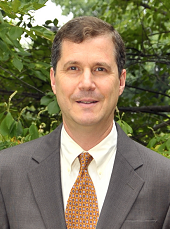ENME 722
Equilibrium Programming in Engineering
Course Syllabus
Course Description
Provide motivation and introduction to equilibrium models involving economics and engineering. We will concentrate on models involving markets (Nash-Cournot, etc.), those wherein the activities are spatially diverse, and those involving energy activities or traffic flow. Areas that will be covered include:
- Review of relevant optimization theory
- Module 1:
-Presentation of the mixed complementarity problem (MCP) and variational inequality problem (VIP) formats to solve equilibrium problems as well as introduction to existence and uniqueness results
- Review of relevant game theory notions
- Presentation of specific models for market, spatial, energy, and traffic equilibrium problems
- Presentations for algorithms to solve these equilibrium problems - Module 2:
- Presentation of mixed integer nonlinear programming (MINLP) problems in engineering
-Two-level optimization problems (mathematical programs with equilibrium constraints) as a special case
-More general MINLP
-Algorithms to solve MINLP
Suggested course textbooks:
- S.A. Gabriel, A.J. Conejo, B.F. Hobbs, J.D. Fuller, C. Ruiz, Complementarity Modeling in Energy Markets, 2013, Springer. (Module 1: MCP/VI portion)
- C.A. Floudas, Nonlinear and Mixed-Integer Optimization Fundamentals and Applications, 1995,Oxford University Press. (Module 2: MINLP portion)
Suggested other supplemental textbooks:
- R. W. Cottle, J. S. Pang, and R. E. Stone, The Linear Complementarity Problem, Academic Press, Inc., San Diego, 1992, ISBN 0-12-192350-9.
- F. Facchinei and J.-S. Pang, Finite-Dimensional Variational Inequalities and Complementarity Problems, Vol. 1, 2003, Springer.
- P. T. Harker, Lectures on Computation of Equilibria with Equation-Based Methods, CORE Lecture Series, Université catholique de Louvain, Louvain-la-Neuve, Belgium, 1993.
Course Objectives:
- Provide understanding for studying problems that involve equilibrium concepts or MINLPs in settings that involve engineering and economics
- Learn about various equilibrium/MINLP formulations relevant to engineering and economic settings
- Present theory for solutions to such problems
- Present algorithms to solve these problems
Instructor:
Dr. Steven A. Gabriel
Telephone: (301) 405-3242 |
Fax: (301) 405-2585 | Office: EGR 2102 B
Email:
sgabriel at umd.edu |
Classroom:JMP 2120
Grading:
- Homeworks, 5% of course grade. Homeworks will be assigned and due every other week (usually). They are practice for the exam and the project and you may work with others on the homeworks but must submit the homeworks separately. Please indicate who you worked with as part of the homework. We will use the class times to solve new problems together interactively as well as go over some of the homework problem solutions posted on ELMS as well as delve more deeply into some of the mathematical results. Note: the two exams will strongly reflect the homeworks so it is in the student's interest to try as many of the homeworks as possible.
- Quizzes about the lectures, 5% of the course grade-- these will be short true-false/multiple-choice quizzes that you can take any number of times to actively listen to the lectures prior to class time.
- Exam #1, 30% of course grade (this is to be only the work of the student, no collaborating)-- this will be some time in October, most likely November 4, 2025
- Exam # 2, 35% of course grade (this is to be only the work of the student, no collaborating)-- this will be some time in December, most likely during the final exam time slot
- Project report+presentation, 25% of course grade (you can work with a team of 1-3 students)-- topic to be discussed later in the course. This will include a project presentation and report both due on December 9, 2025.
- Homework solutions will be posted on ELMS 9:30am the day they are due.
Course Policies:
Students are encouraged to attend all lectures since the exams and the homeworks will be closely related to material discussed in lectures.
The University of Maryland, College Park has a nationally recognized Code of Academic Integrity, administered by the Student Honor Council. The course is subject to this Code of Academic Integrity which sets standards for academic integrity at Maryland for all
undergraduate and graduate students. As a student you are responsible for upholding these standards for this course. It is very important
for you to be aware of the consequences of cheating, fabrication, facilitation, and plagiarism. For more information on the Code of
Academic Integrity or the Student Honor Council, please visit the website.
The University has a legal obligation to provide appropriate accommodations for students with disabilities. Please inform Dr. Gabriel of any accommodations needed relative to disabilities. Also, University of Maryland policy states that students should not be penalized due to observances of their religious beliefs. Please inform Dr. Gabriel of such instances well in advance so that appropriate steps can be taken.
Short Bio on Dr. Gabriel
Webpage: www.eng.umd.edu/~sgabriel
Academic Experience: Besides teaching at University of Maryland, Dr. Gabriel has held appointments in the Mathematical Sciences Department at The Johns Hopkins University, and in the Engineering Management and Systems Engineering Department at The George Washington University. In addition, he has served as a postdoctoral researcher in the Mathematics and Computer Science Division at Argonne National Laboratory.
Industry Experience: Dr. Gabriel has over 20 years of industry experience involving mathematical modeling of engineering-economic systems with applications in energy, transportation, service performance, and operations management. His specialties include optimization/equilibrium modeling, econometrics, decision support systems, and software development. His most recent industry experience includes 5 years as a Project Manager at ICF Consulting involving projects with their oil and gas group, as well as their electrical power group.
![]()
ENCE722 home | Syllabus | Schedule & Homeworks | Projects | Downloads & Links
